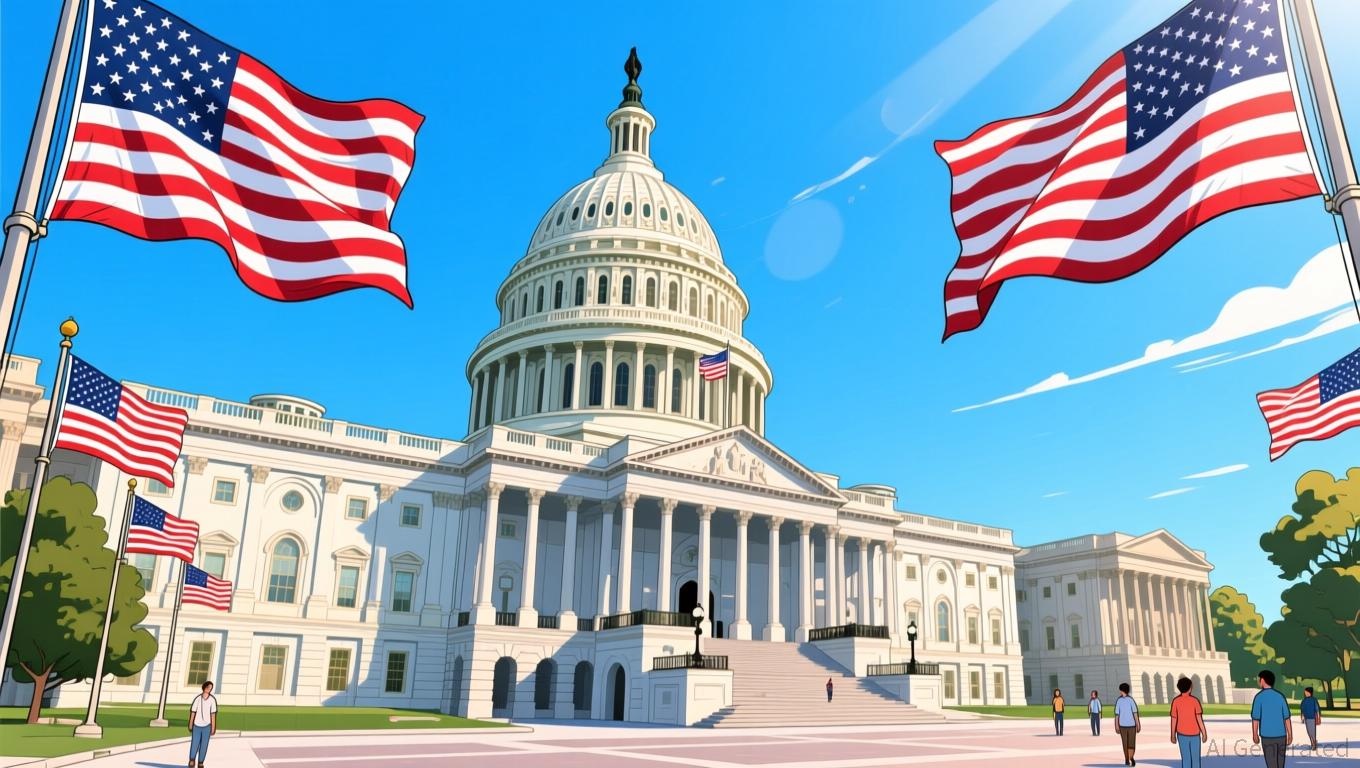Poll Shows Young Conservatives More Willing to Give AI Control Over Policy and Military
A new Heartland Institute and Rasmussen Reports survey showed that younger conservatives were more willing than their liberal counterparts to give advanced artificial intelligence sweeping control over major government functions. The findings come despite years of complaints from conservatives that AI systems lean left politically, making the level of support all the more striking.
The poll surveyed 1,496 likely voters aged 18 to 39 between October 31 and November 2. It asked whether respondents supported proposals to let an AI control public policy decisions, determine constitutional rights, or command the world’s largest militaries with the express purpose of “reducing the number of people who die from war.”
Donald Kendal, director of the Glenn C. Haskins Emerging Issues Center at the Heartland Institute, a conservative public policy think tank known for its work on state-level legislation and its criticism of federal regulatory overreach, said the ideological breakdown surprised him.
“If you go into the cross tabs, those who self-identified as Republicans or conservatives were more likely to say yes or support these proposals that are outlined in the survey,” Kendal told Decrypt. “As for why that’s the case, honestly, I’m at a loss.”
The survey relied on self-identified ideology, and those who identified as conservatives showed the highest levels of support in each scenario. The survey reported a margin of sampling error of plus or minus three percentage points.
Kendal said some young conservatives may be reacting to a broader dissatisfaction with existing institutions.
“We’ve got so little trust, faith in our institutions,” he said. “There’s such a terrible approval rating of Congress that it’s so bad that we might as well just blow it all up and start from scratch.”
The Heartland/Rasmussen findings come at a time when trust in government is near record lows. An October 2025 Gallup poll showed that only 15% of Americans approve of the way Congress is handling its job. These low numbers, Kendal said, could explain why some respondents may view AI as a better choice to lead the nation.
“There’s this misconception that AI systems are just these objective sources of truth,” Kendal said.
The results are somewhat confounding. Since ChatGPT’s debut in 2022, researchers and think tanks have documented political bias in major AI systems. A peer-reviewed Public Choice study found that large language models produced left-of-center responses in standardized tests. The Manhattan Institute reported similar results, noting that ChatGPT framed Democratic positions more favorably than Republican ones.
And a 2024 American Enterprise Institute review of GPT-4, Claude, and Gemini found they rated right-leaning think tanks lower in “objectivity,” “morality,” and “quality” than left-leaning institutions.
The Heartland survey also found that more than a third of young voters supported giving an AI system control of the world’s largest armies. Kendal said some respondents may have taken the question’s framing at face value.
“If you’re taking that in good faith, fewer casualties of war is a fairly sympathetic dream,” he noted. Kendal said voters' thinking could be that “if putting AI in charge of this could reduce the amount of wars, or at least the amount of carnage associated with these wars, then, let's just do it like it's certainly not working out the current way.”
Kendal said the support levels underscored a misunderstanding about how AI systems work.
“One of the things I try to drive home is dispelling this illusion that artificial intelligence is unbiased. It is very clearly biased, and some of that is passive,” Kendal said, noting that increasingly society is relying more heavily on AI.
He added: “We do so at our own peril and with a blindfold on, because these things aren't obvious.”
Disclaimer: The content of this article solely reflects the author's opinion and does not represent the platform in any capacity. This article is not intended to serve as a reference for making investment decisions.
You may also like
Bessent: Raising the Debt Ceiling by July Is Essential to Prevent Market Turmoil
- US Treasury Secretary Bessent reiterated the economy is not at recession risk despite fiscal debates and market volatility. - He warned the debt ceiling must rise by July 2025 to avoid default, stressing "full faith and credit" is non-negotiable. - Corporate resilience (e.g., Ross Stores' strong earnings) contrasts with Fed policymakers' split on rate cuts amid inflation concerns. - Trump's $2,000 "tariff dividend" proposal faces congressional hurdles, with Bessent acknowledging it requires legislative a

Trump’s Andrews Golf Renovation: Who Pays the Taxpayer Tab?
- President Trump enlisted Jack Nicklaus to renovate aging golf courses at Joint Base Andrews, part of his White House-related construction projects. - The $300M+ portfolio raises questions about funding sources, mirroring controversies over unclarified costs for other projects like the Paris-style arch. - Nicklaus Design, with 425 global courses, will lead the overhaul despite Trump's claim of "very little money" needed, while critics scrutinize public-private spending blending. - The 15-mile White House-

Crypto Casinos Strive for Security, Fast Transactions, and Regulatory Reliability
- Crypto casinos face heightened scrutiny as demand grows for secure, efficient platforms prioritizing fund transparency and rapid withdrawals. - Coinbase's wallet migration highlights proactive security measures, aligning with crypto casinos' need for robust cybersecurity to protect user assets. - UK's NCA dismantled a $1B crypto laundering network, demonstrating blockchain traceability's role in combating crime and bolstering trust in compliant platforms. - BitForex's KYC enforcement and withdrawal updat

As Cancer Takes Her Life, JFK Descendant Opposes Cousin's Health Policies
- JFK's granddaughter Tatiana Schlossberg revealed terminal AML diagnosis, criticizing cousin RFK Jr.'s cuts to mRNA vaccine research funding critical for cancer therapies. - RFK Jr.'s HHS nomination faces scrutiny as his anti-vaccine policies align with CDC's revised guidelines, raising concerns about public health trust and research equity. - OCRA's new policy center and interactive map aim to accelerate cancer research access, responding to Schlossberg's advocacy for equitable clinical trial resources.

